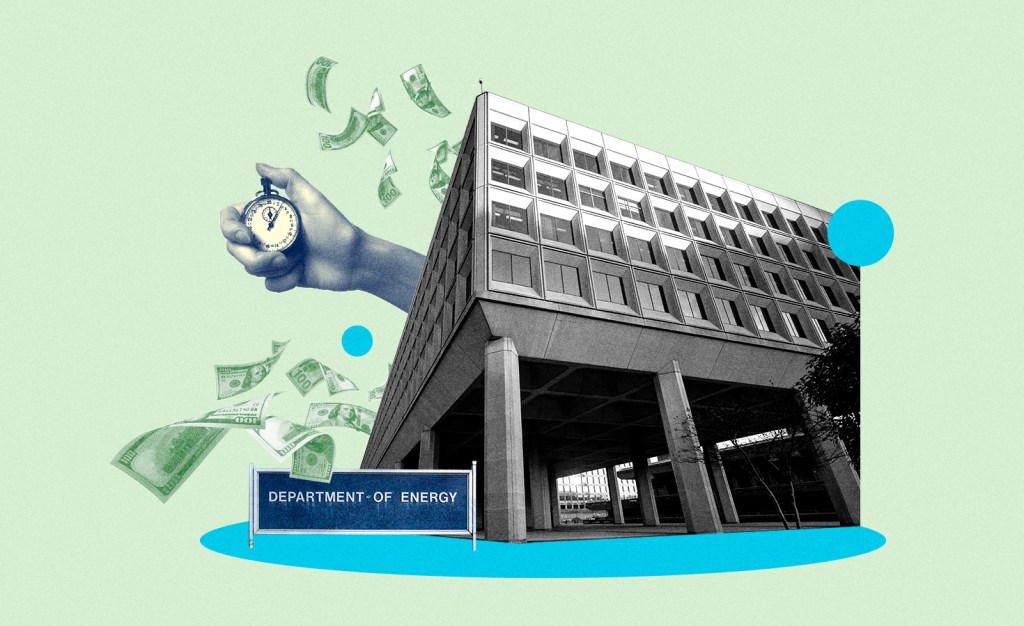What you should know on clean energy funding before Trump takes office
A lot of uncertainty exists around what clean energy funding may be cut during the next administration. Here's a guide to some programs to apply for now. Read More

It’s well known that once President-elect Trump is sworn in, many programs funding the development of clean energy technology will be cut with haste. But it’s still November and President Joe Biden’s administration is making a point to spend as much funding from the Inflation Reduction Act (IRA) and Bipartisan Infrastructure Law (BIL) as possible in the time left.
The White House even created an easy-to-read fact sheet about which IRA funding opportunities are still open and the associated timelines.
Still, come Jan. 20, associated IRA and BIL tax credits, grants, and funding programs are vulnerable. And it seems almost certain that the IRA’s electric vehicle credit is destined to fall as a casualty to cuts, other credits and programs on the chopping block are still up in the air.
“It is difficult to say with 100 percent certainty that anything is safe from the Trump administration’s chopping block,” said Jillian Blanchard, director of the climate change and environmental justice program at lawyers for good government. “Funds that have been announced, but not obligated, are most at risk, while funds that have been obligated or are conditionally awarded are slightly less vulnerable.”
Aaron Lang, a partner at law firm Foley Hoag, agreed with Blanchard’s sentiment, telling Trellis, “It’s still so early to be predicting with any kind of certainty what programs will and will not exist.” But aside from the mainly consumer-facing EV tax credit, which Lang refers to as “low hanging fruit,” he says that other credits with larger industry implications are far harder to simply cut.
“It’s a different question when you’re talking about major investment backed expectations for building big facilities based on these tax credits,” said Lang.
As the Department of Treasury (DOT) officially writes IRA credits into the tax code, such as the Section 45V hydrogen tax credit, the only way to alter them is through a Congressional Review Act pathway. If a new administration’s DOT wants the code reversed, “they’d have to issue a new set of proposed rules, go through another round of commenting and finalize another set of rules,” said Lang.
Editing the tax code will not be an abrupt process, so Lang believes the private sector should instead pay attention to ongoing news regarding the National Environmental Policy Act (NEPA). NEPA is a law that requires federal agencies review environmental impacts of projects and is often required for prospective IRA/BIL loan or project applicants.
Lang is referring to a recent ruling by a D.C. Circuit Court of Appeals that decided that the White House Council on Environmental Quality — which has issued guideline for NEPA compliance since 1970 — doesn’t actually have the authority to create any binding regulations.
The ruling “has sort of thrown into doubt how NEPA review will work going forward,” said Lang.
Applications that are still open
Until the process to reduce funding and alter the tax code is formally announced, these programs are just some examples of opportunities still open and ready to go.
Loan Program Office’s Title 17 Clean Energy Financing Program
- Application Due Date: Rolling
- Program overview: LPO will provide federal financing to projects that clearly demonstrate a plan for clean energy deployment and/or infrastructure development to reduce over greenhouse gas emissions. You can find the fact sheet here.
- Apply here
Loan Program Office’s Advanced Technology Vehicles Manufacturing Loan Program
- Application Due Date: Rolling
- Program overview: LPO will provide loans to automobile manufacturer and automobile component manufacturer applicants seeking financial support to cover the cost of vehicle production, assuming the cars meet the defined fuel economy targets, and component or material costs for manufacturers producing pieces such as batteries and light-weight aluminum steel. You can find the fact sheet here.
- Apply here.
Fast-41 Environmental Review Improvement Fund Tribal Assistance Program
- Application due date: Rolling
- Program overview: The Federal Permitting Improving Steering Council will help Tribal projects deemed most likely to benefit from a specific federal advocate throughout the permitting process. Eligible project areas include renewable energy production, carbon capture, and electricity transmission, among others. You can find the fact sheet here.
- Apply here.













